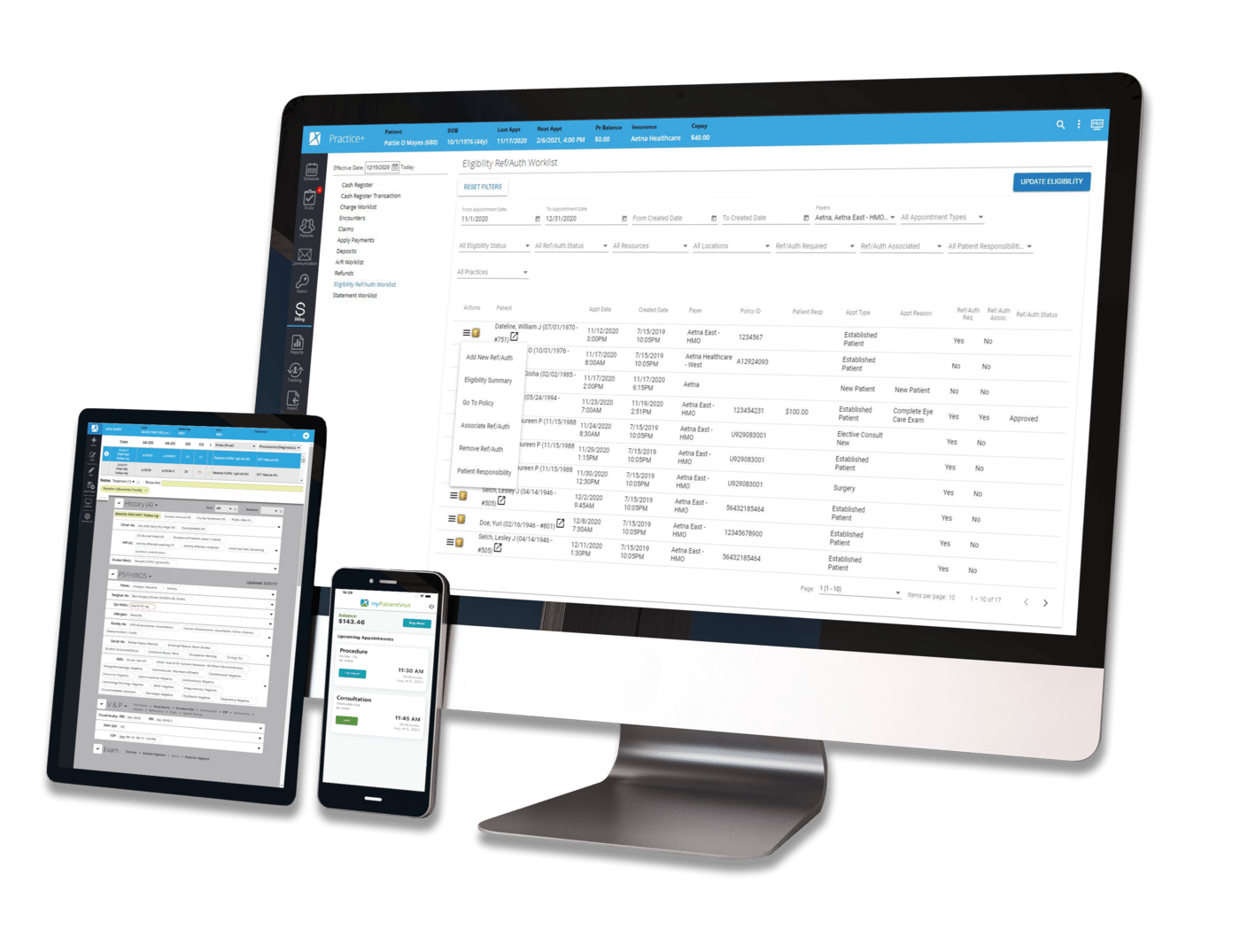Latest Articles
The latest news and information regarding electronic medical records, practice management software, HIPAA, and security from Nextech.

Healthcare Technology | Financial Management
By:
Jennifer Gibson
April 6th, 2018
There are numerous external factors that can impact a specialty practice’s ability to remain financially strong—shrinking payer reimbursements, evolving regulatory requirements and the exploding number of high deductible health plans, just to name a few. A key to navigating these evolving dynamics is a high-performing revenue cycle—one that is not only efficient but also effective at capturing all the revenue that a practice has earned.

Patient Engagement | Financial Management
By:
Nextech
August 26th, 2016
If you want to attract and retain customers, you need a solid marketing plan in place—no matter what industry you are in. That doesn’t necessarily mean spending a lot of money on scattershot advertising. In fact, with so many new and relatively inexpensive channels, marketing can be easier, and more varied and focused than ever before. Specialty practices, in particular, need to market themselves well, as many times they receive their clients based on referrals.


Ophthalmology | Regulatory & Compliance | Healthcare Technology | Financial Management
By:
Dan Montzka, MD
April 7th, 2016
CMS reimbursement cuts to ophthalmology have some industry experts predicting big changes to practice patterns, from fewer residents entering the specialty to fewer surgeons entering the operating room. To survive, specialists are going to need a game plan for increasing revenue.

Healthcare Technology | Financial Management
By:
Nextech
January 27th, 2016
Ever since the Health Information Technology for Economic and Clinical Health (HITECH) Act was introduced in 2009, the healthcare industry has placed an enormous priority on implementing more electronic software in clinics.

Healthcare Technology | Financial Management
By:
Brian Gennusa
August 18th, 2015
How does your medical practice deal with its revenue cycle management? Working with the flow of money into and out of a practice is as important as providing proper care to patients. Without the funds, after all, a practice ceases to function. Thankfully, there are a lot of ways that organizations can improve their relationship with their revenue. Many groups take too long to collect, allow too many write-offs, or use technology that is unoptimized for collections. Some have a very high claim rate denial or fail to follow up on denied claims. Finding out how a given practice can improve its financial situation requires knowing exactly how it is failing to capitalize on available opportunities.

Healthcare Technology | Financial Management
By:
Nextech
July 30th, 2015
Healthcare spending in the United States is estimated to have hit as much as $3.1 trillion in 2014. That roughly calculates to about $9,700 spent on healthcare for every person in the country. Compared to 2013, healthcare spending among Americans experienced a growth of 5.5 percent last year. This is the first time since 2007 that growth in healthcare spending has gone above five percent.

Patient Engagement | Financial Management
By:
Nextech
June 23rd, 2015
The primary goal of all medical practices is to provide excellent care to patients, but at the end of the day, a practice is a business. Without a solid patient base, practices cannot be financially successful. Specialty practices that offer elective procedures like cosmetic plastic surgery, fillers and injectable neuromodulators, and Lasik eye surgery, should not only rely on existing patients for business, but always be looking for ways to bring new patients into a practice. One of the most cost effective ways to build a patient base is through word-of-mouth marketing.

By:
Nextech
June 9th, 2015
Financial management of a medical practice is similar to mastery of a fine art or sport; it's something that one has to be working at constantly in order to do well. However, striving for financial excellence doesn't have to be a chore. In fact, there are several key habits that you can work into the practice's daily and quarterly routine that can help you maximize profit, reduce error and improve financial stability across the board. Whether you're satisfied with the state of your practice's financials or are looking to improve them, you may benefit from reading these tips: